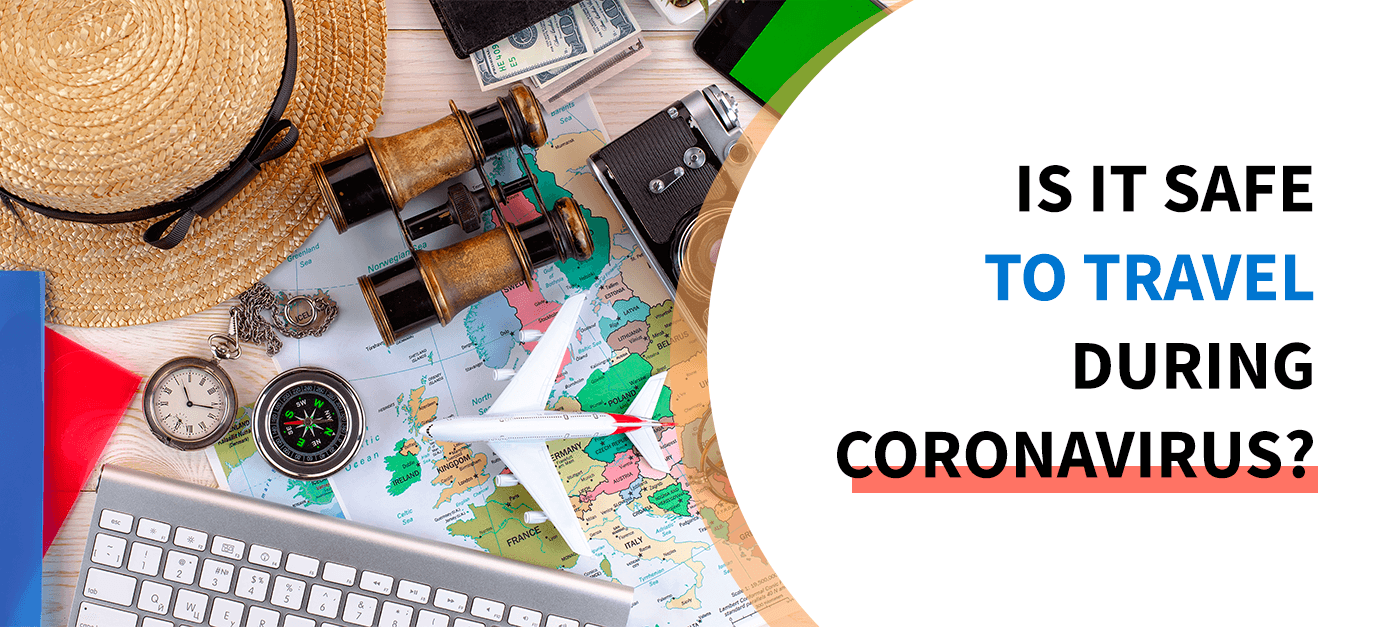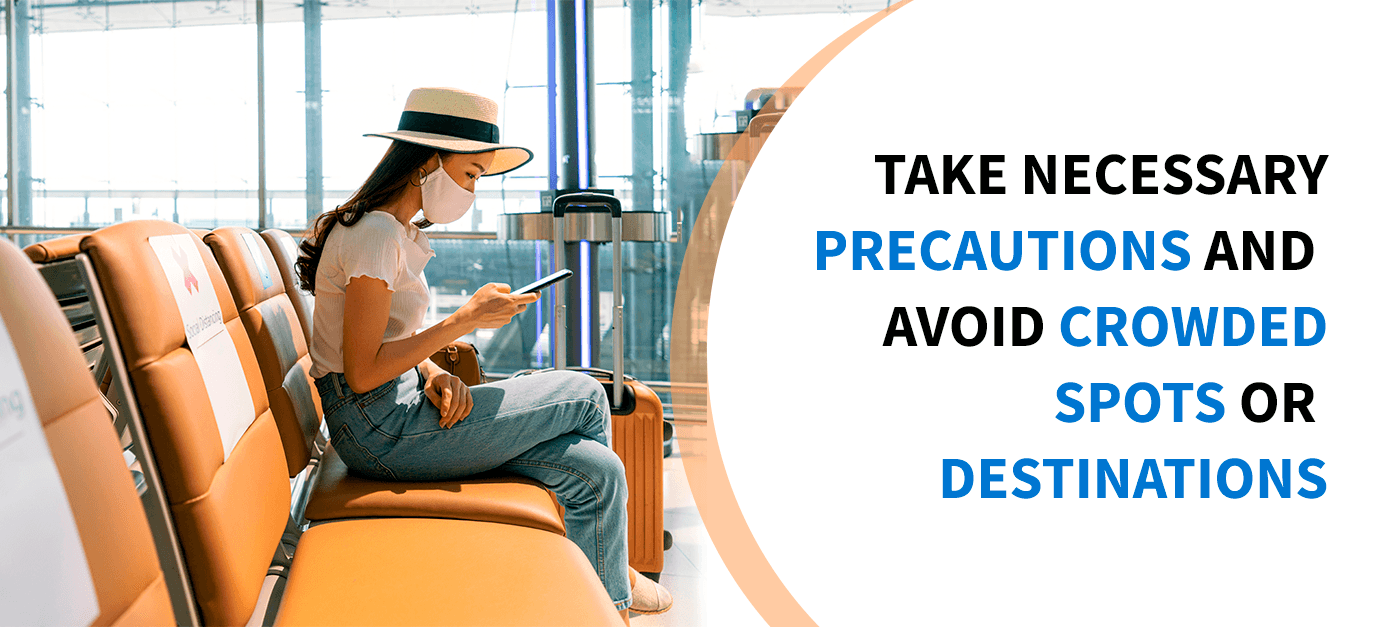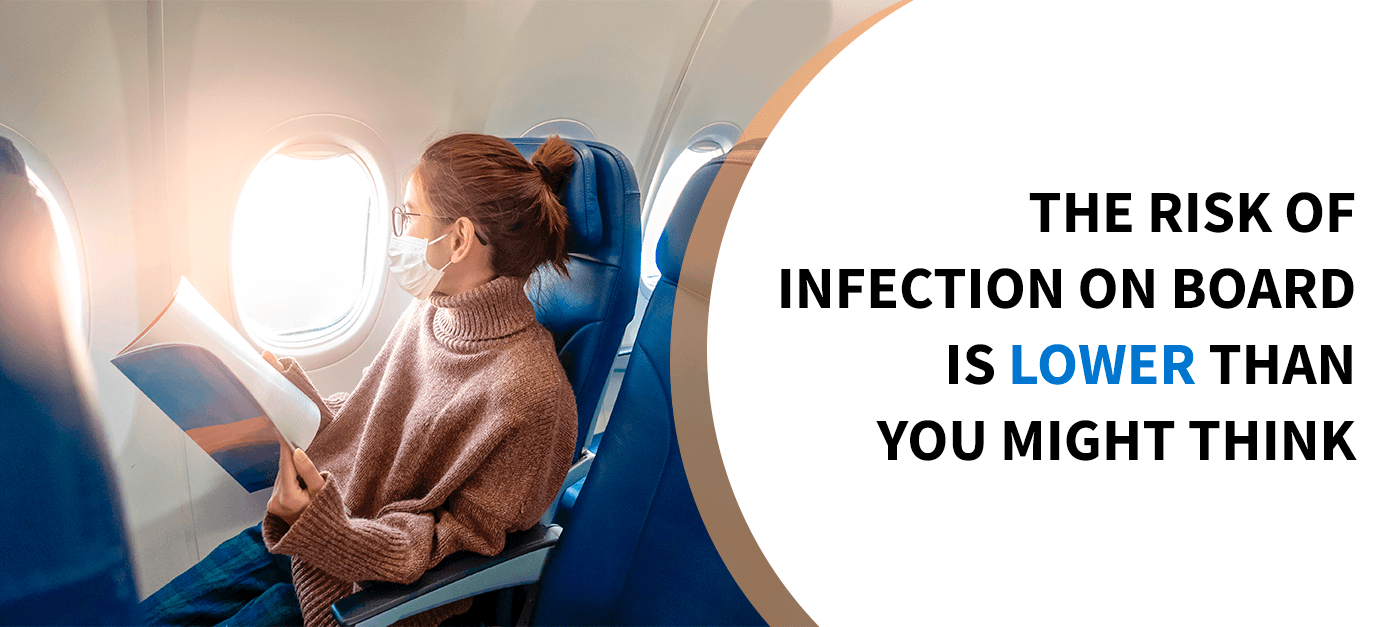
Is It Safe To Travel? Your Coronavirus Travel Guide
The pandemic forced people to stay at home and cease traveling as domestically as internationally. Now, as stay-at-home orders are being lifted and cities around the world are slowly reopening, travel restrictions have started to soften, and travelers are looking forward to traveling again. Some travelers give preference to camping, short trips, and road trips, while others hope to return in the sky. But is it safe to travel right now?
Domestic travel
All U.S. states reported cases of the coronavirus disease, and the Centers for Disease Control and Prevention (CDC) warns that even domestic travel increases the risk of getting and spreading COVID-19. However, there are ways and advice on how to minimize risks while traveling.
The main and most important thing for safe travel within the U.S. is to take necessary precautions and avoid crowded spots or destinations with a potentially high flow of travelers. You will also need to do some research if you are planning to travel to or across several states. Many states have their own travel restrictions and they vary widely. For example, in Hawaii, all out-of-state visitors should self-quarantine for 14 days until at least July 31. In Florida, visitors from New York, New Jersey, and Connecticut are also required to self-quarantine for two weeks. If you are traveling from one of the states with high rates of new COVID-19 cases, you will most likely be required to self-quarantine for 14 days. If you were tested negative for COVID-19, you won’t be required to quarantine in Alaska and Maine, while in Vermont, you will be required to quarantine for seven days. Make sure you visit the state’s official tourism website for the latest updates on restrictions.
International travel
International travel is almost a challenge right now. Nonessential travelers and non-residents are still not allowed to travel to many countries. Borders between European countries were largely lifted as from July 1, but tourists from the U.S. are still prohibited from entering European countries. So if you were wondering if it’s safe to travel to Paris or where dreaming about travel to Spain, you will need to wait a bit longer.
If you want to travel internationally, you can go to the United Kingdom or Caribbean countries, such as Antigua and St. Lucia, but you will need to follow some strict requirements. For example, you need to self-quarantine for 14 days when you arrive in the United Kingdom. If you travel to Bahamas or Bermuda, you will need to show a negative COVID-19 test. Travel to Cambodia has become costly as the country requires visitors to pay a $3,000 travel deposit before entering to cover any potential coronavirus-related expenses.
Air travel during coronavirus
Air travel seems like a risky adventure, but health authorities and CDC say that the risk of infection on board is low. Air travel has dropped dramatically and flights have been half full, which makes it easier to practice social distancing. Many airlines are leaving middle seats empty, while others are capping total occupancy to 50% or 60%. Major airlines are also cutting in-flight food and beverage service to limit contact between travelers and crew.
If you are concerned about the quality of cabin air, then you shouldn’t. Most international jets are equipped with High Efficiency Particulate Air (HEPA) filters, which are capable of removing more than 99% of microbes, mold, pollen, dust, bacteria, and any airborne particles with the size of 0.3 microns. Airplane cabins itself are cleaned with special anti-microbial disinfectants. Still, it doesn’t mean you shouldn’t exercise recommended precautions to avoid catching any virus. Use masks, keep hands clean, and use antiseptic wipes on surfaces you are going to touch during the flight.
Airports are another place of risk. But the good news is that airports are trying various tactics to create a safe and clean space for travelers. Airports are taking such precautions as touchless kiosks, hand sanitizer stations, Plexiglas shields, and frequent cleaning. Note that many airports are required to follow local guidelines or laws, and if there is a requirement to wear a face mask, you are required as a passenger to keep your mask on. The exceptions are when you eat or drink, or go through TSA. So, check out requirements of the airport of your destination, especially if you travel to a higher-risk destination.
Is a road trip safer?
For those who prefer to stick closer to the ground and avoid planes, a road trip is a good alternative. Traveling by car involves less interfacing with other people and as a result less risk. However, you still need to prepare for your trip, especially if you are planning a long driving trip. The risk here is not about getting in the car, but where you stop along the way and what you are going to do when you get somewhere.
Planning your route is necessary even if you’ve done this trip multiple times. Some states may still be closed, others may have checkpoints, there can be changes in toll collection and rest-area food sales, and other roadside travel restrictions. Make sure you get your supplies in order and have products for keeping hands and surfaces clean and sanitized. You will need hand sanitizer, disinfecting wipes, disposable gloves, face masks, sealable disposable plastic bags, and tissues to maintain good hygiene on the road.
When it comes to stops, you may want to avoid high-traffic roadside stops. Anyway, wear gloves and face mask while at a public spot as gas stations or public restrooms. If you are planning to stop somewhere overnight, call ahead to confirm availability or your reservation.
Tips to stay safe while travelling
We don’t know when it will be safe to travel again, but we can take reasonable steps to stay safe at airports, on planes, in hotels, or while getting from place to place.
- Research before you go. You will want to know what precautions are taken by airlines, hotels, and airports to make sure you choose the safest alternative.
- Use your own devices. Use your smartphone or tablet to entertain yourself during travel. This will help you make your airport and airplane experience as contactless as possible.
- Bring your own pillow. Having your own pillow on board or in a hotel is much safer. Just don’t forget to clean it in between your trips.
- Avoid connecting flights. The less time you spend in another airport, the better. You will have one less location where you might come in contact with the virus.
- Prepare your own snacks. Airlines are cutting their in-flight services to limit contact between travelers and crew. Plus, you may face a 14-day quarantine upon arrival to your destination place where you might be staying in a hotel you didn’t choose.
- Use disinfectant wipes. Today cleaning your seat on board of an airplane or cleaning staff you are going to touch in a hotel room is becoming a new normal.





